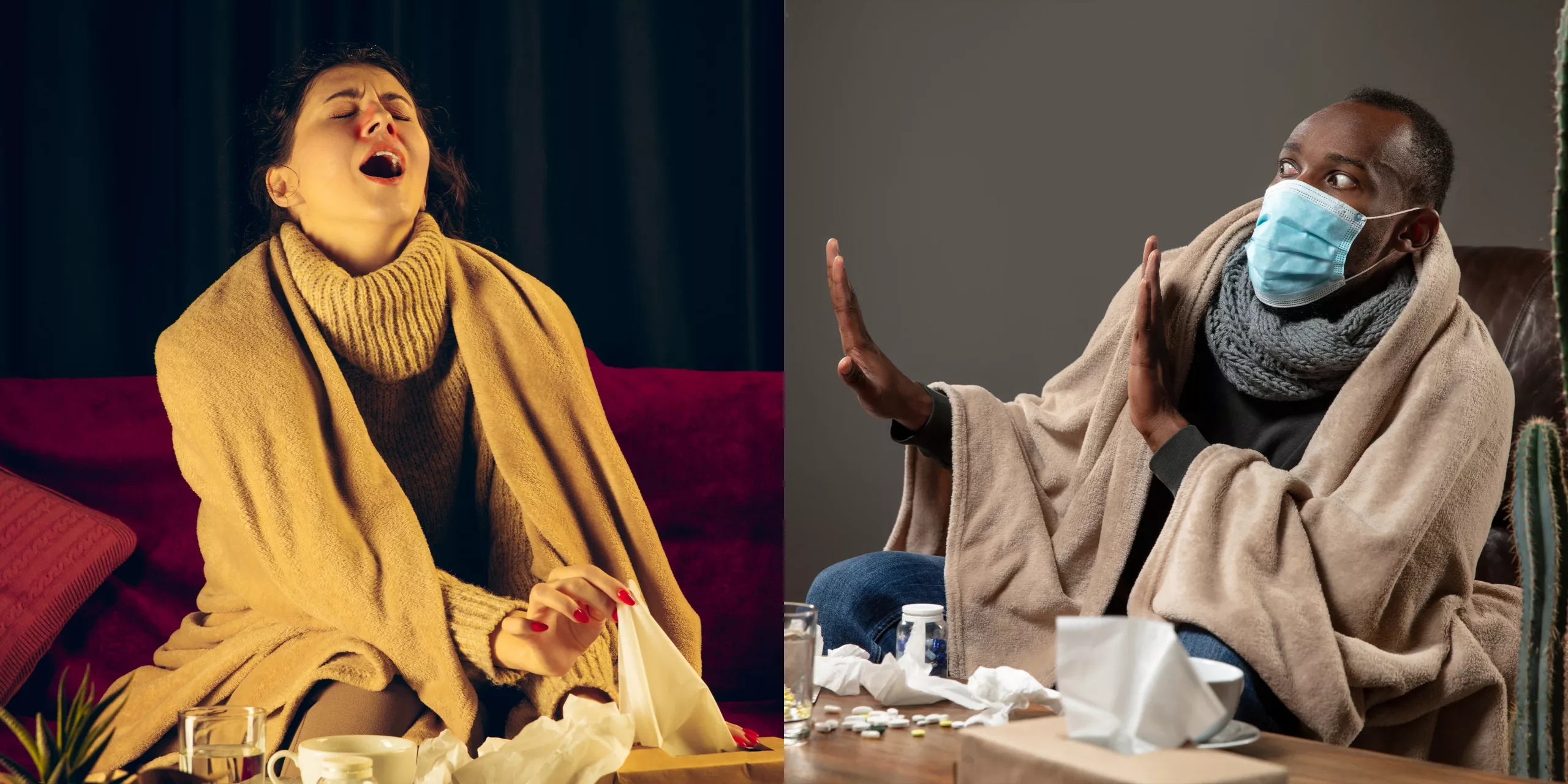For months we have observed the media’s swell surrounding the worldwide virus. Rising numbers of infections. Lowering death rates. Cities flooded with new cases. Areas escaping all threats of the virus. Statistics, guidelines, rules, rebellion, and more.
Will the incessant pandemic news slow down? Of course. Will information related to the virus eventually dissipate to a random article here or there? You bet. But the bombarding stream of information has left its mark. It has overwhelmed our thoughts and frightened us into a personal and cultural state of anxiety—which won’t disappear as quickly as you think.
In fact, this pandemic has altered our psychology, leaving us more disgusted and mistrustful than ever before.
Disgust
An instantaneous byproduct of the pandemic is the awareness of threats.
Ew, that person just sneezed.
Look at them. They just look sickly.
That person is eccentric, so let’s not get too close to them.
A fear of contagion makes us hyper aware of those around us. When COVID-19 first appeared in our country, everything shut down. We stayed away from family and friends. We closed schools and stores. Morally and culturally those were strategic moves. But they were also psychological reactions.
Our ancestors experienced this too. They avoided foods that made them ill, stayed away from things that smelled bad, and even kept their distance from places that weren’t clean. They recognized that the presence of unwanted foreign invaders triggered a weakened immune system, and they required strength and health in order to survive. Our bodies naturally follow those same patterns.
So when the world becomes overcome by a strange new virus, we psychologically react to protect our health. And that reaction usually looks like disgust.
You might notice that you subconsciously plaster a disgusted look on your face when someone at the nearby gas pump sneezes. You may not even notice that you back away from a stranger who just looks unhealthy or sick. You possibly even feel disgusted at the thought of no longer social distancing.
Are you asking yourself, “How in the world did we live before all of this?” That’s a psychological disgust response too! Although it feels crude, remember that your body is just trying to survive. However, sometimes our responses are exaggerated or misplaced.
It’s just like the fight-or-flight response in someone with anxiety. Yes, you should have that reaction when you’re crossing the street and see a car zooming in your direction. But you shouldn’t necessarily have the same experience when your friendly next door neighbor waves hello from their mailbox.
You should be disgusted by deadly germs, but not all germs are deadly.
- Remind yourself that not every person you encounter is sick, contagious, or a COVID-19 carrier.
- Take appropriate precautions such as wearing a face mask when required or washing/sanitizing your hands. But don’t fear that touching an inkpen or pushing an elevator button will kill you.
- Acknowledge that you do not want to get coughed or sneezed on. But realize that people don’t just sneeze when they are sick—our noses get tickled and prompt us to sneeze for so many reasons.
- Rationalize your primal disgust response. A sneeze doesn’t mean they are sick. I can touch the same object as another person. Etc.
Mistrust
The second psychological byproduct of a pandemic is widespread mistrust. According to research, we judge people more harshly during our first encounter when we feel vulnerable to infections (which is probably true for most of us during this season). And if the other individual is less attractive, then we judge even more harshly, assuming that their unattractive features indicate ill health.
Once again this can be linked back to our ancestors. They were naturally fearful of outsiders for limitless reasons, including their self-protective impulse to survive. Presently we live in an era of globalization so this reaction leads to prejudice and widespread mistrust. For example, consider how cautious many people have grown of Asians and Asian products since the outbreak of COVID-19.
Much like an overactive fight-or-flight response, this mistrust is a misinterpretation of reality.
- Remind yourself that not every stranger is untrustworthy.
- Take appropriate precautions, such as parking in a well-lit area or not venturing out alone at night. But don’t fear that every stranger you pass is a threat.
- Acknowledge that other people may also unintentionally find you untrustworthy.
- Rationalize your primal response to not trust others. A foreigner isn’t an enemy. Someone who looks or acts different from you is still a human being. Etc.
Overwhelmed by your disgust and mistrust?
How has this pandemic psychologically changed you?
- Do you judge others harshly?
- Are you overly cautious?
- Do you steer clear of people who don’t look like you or seem unhealthy?
- Are your human survival instincts of flight-or-fight and survival-of-the-fittest too strong?
If this pandemic flared up your human reflexes of disgust and mistrust, we can help. Life may not return to “normal” and that’s okay. Nevertheless you can be respectful of others and alter your perspective of the people around you.
Give us a call so we can help you cope with your disgust and mistrust reactions. Not sure if that’s your issue? Together we can discover the impact that COVID-19 has had on you—from personal thoughts and interpersonal relationships, to anxieties and fears, to adjusting to a new-normal.
Teen Social Anxiety

